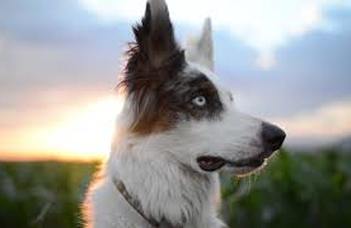Dogs are aware of what they have just done, new study finds

Episodic memory is recollection of events that are encoded when it is not known that they should be remembered. Traditionally, in humans, this type of memory is thought to be linked to self-awareness because, to remember the past event, one would have to “mentally travel back in time” and replay in its mind the past event that s/he lived.
The results of this new study suggest that dogs are able to represent and remember their own actions.
Mental representation of own actions is very challenging to study in non-verbal species (i.e., in non-human animals) because we cannot simply ask them to tell us if they remember what they did. For this study, we devised an innovative method that, in some sense, enabled us to ask dogs this question, explains lead researcher Claudia Fugazza.
The scientists trained 10 dogs to repeat their own actions on command “Repeat!” with a specific training protocol. For example, the owner asked the dog to jump in the air with a cue previously trained (“Jump!”), then gave the “Repeat!” command and the dog was expected to jump in the air one more time. During training, this was applied to a set of actions the dogs had been trained to performed.
Asking the dogs to repeat other untrained actions in different test situations gave us the possibility to ‘ask them a question’: “Do you remember what you did?”, clarifies Fugazza.
Most importantly, to test episodic-like memory of own actions, the researchers tested the dogs’ capacity to repeat their own actions performed spontaneously in everyday life situations, when the dogs did not expect such a test.
For example, the owner was sitting on the sofa reading a book, pretending not to observe the dog. As soon as the dog spontaneously performed a well-identifiable action, i.e., he drank water from his bowl, the owner gave the “Repeat” command.
In a similarly unexpected test, the dogs encountered some novel objects (a plush toy, a statue with the shape of an animal, a crate and a doll) while walking with their owner. We expected dogs to explore the objects and perform some actions on them, which they may remember and repeat when asked, explains Péter Pongrácz, Ethologist, co-author of the study.
In these tests, dogs remembered and repeated their own actions in 70% of the trials when there was no delay between the action performed spontaneously and the “Repeat!” command.Their performance gradually decreased to between 30% and 40% with delays up to 1 hour.
These tests tapped into episodic-like memory because the dogs did not expect the Repeat command, therefore, they could not rely on a prepared response, nor could they repeat a previously rewarded action, because these spontaneous actions had not been previously trained, points out Ákos Pogány, ethologist, co-author of the study.
Ádám Miklósi, co-author and head of the Department concludes: This study is the first showing that dogs are aware of their own actions. This constitutes an important step forward in understanding the complexity and evolution of self-representation. Moreover, we expect this discovery to change the way we think about dogs, because now we know that they also create a mental representation about their ongoing actions. So, to some extent, dogs are aware of what they do.

